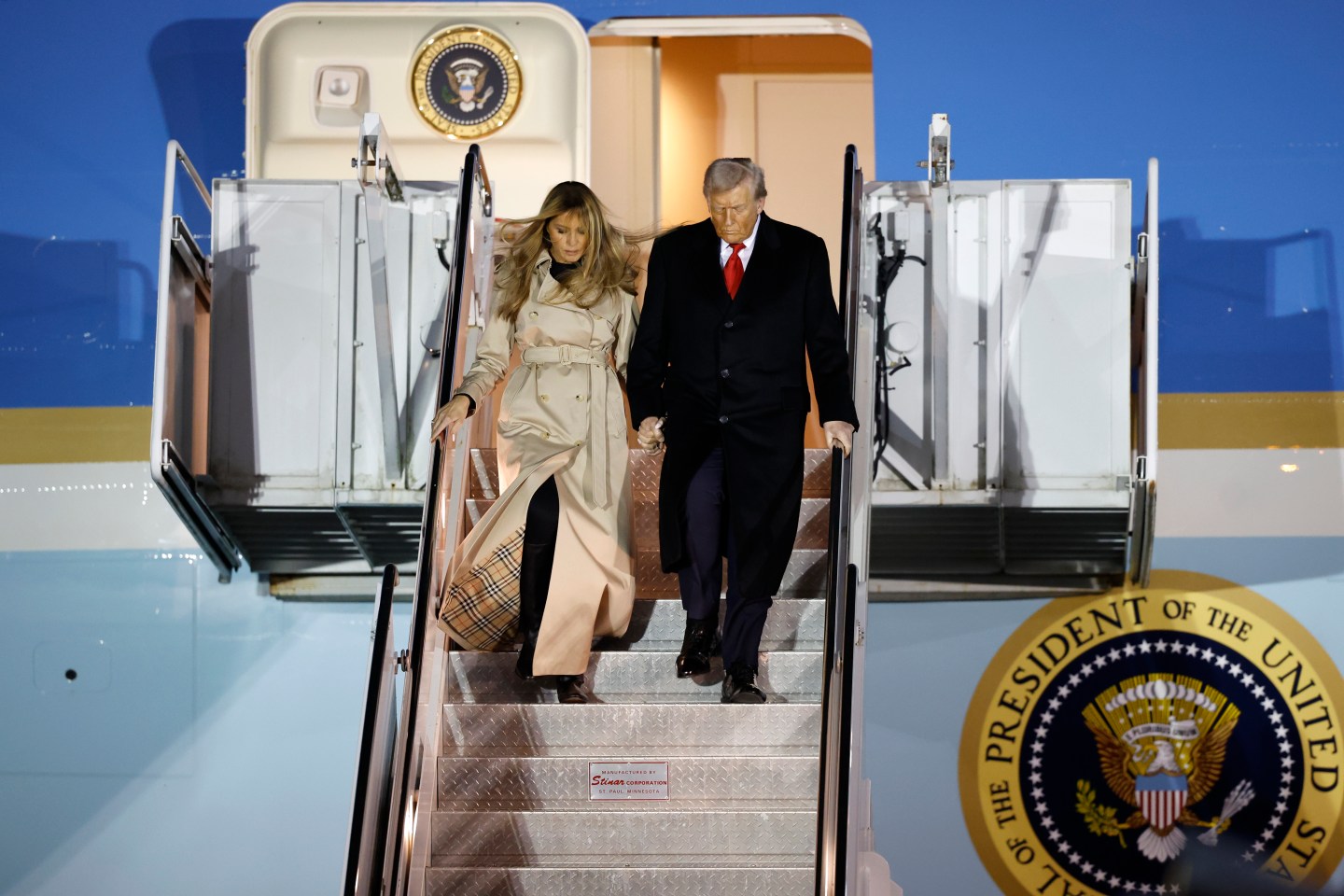U.S. President Donald Trump touched down in the United Kingdom on Tuesday for an unprecedented second state visit. He was accompanied by American tech CEOs, who pledged $42.3 billion worth of investments in U.K. AI projects.
The investments from major players, including Microsoft, Google, Nvidia, and OpenAI, are part of a sweeping £31 billion ($42.3 billion) “Tech Prosperity Deal,” aimed at building out the UK’s AI infrastructure, funding data center projects and computer chips.
The bulk of this investment comes from Microsoft, which unveiled a plan to spend almost $30 billion (£22 billion) over the next four years. The investment package is the company’s largest outside the U.S. and is separate from OpenAI’s recent announcement of a smaller, U.K.-based version of Stargate.
At the heart of the company’s push is a supercomputer in Essex, which will house over 23,000 GPUs in partnership with British-based AI infrastructure company Nscale, a project that CEO Satya Nadella says could accelerate the UK’s economic growth by 10% within just five years. “As we make these investments, we are guided by a clear and bold vision, ensuring that both the United States and the United Kingdom remain at the forefront of cloud and AI innovation,” Nadella said in a video statement.
According to the company, $15.5 billion would be spent on capital investments, such as the data center project, while a further $15.1 billion would be directed towards maintaining and growing its U.K. operations. Microsoft President Brad Smith said during a Tuesday press briefing that the company already had contracts in place or had pre-purchased the electricity needed to power the new data centers it plans to build.
“We will be good for every cent of this investment,” Smith said in the press briefing. “We care about British pounds, not empty tech promises.”
Microsoft isn’t the only U.S. company committing to major AI infrastructure investments in U.K. Google pledged $6.8 billion for AI research and infrastructure, which includes a new $1 billion AI data center that is set to open this week, and more funding for research at Google DeepMind, its advanced AI lab that continues to be headquartered in London.
DeepMind co-founder and CEO Demis Hassabis celebrated the investment as demonstrating “the strength of the US–U.K. partnership.”
“Combining the unique strengths of both countries will help to ensure our scientists continue to lead on the breakthroughs and innovations that will define the future. In particular, we look forward to working with both governments to advise on how scientists can harness the latest AI tools, as well as building on our partnership with the U.K. Atomic Energy Authority to advance fusion energy research in the US and the U.K.,” Hassabis said in a post on LinkedIn.
U.S. chip giant Nvidia also pledged to contribute up to £11 billion ($15 billion) for what it calls the largest AI infrastructure rollout in U.K. history. The company plans to use the investment to build out new UK “AI factories.”
The chipmaker will also partner with UK.-based Nscale to build data centers containing up to 300,000 Grace Blackwell GPUs worldwide, including up to 60,000 will be deployed physically in the U.K. The number includes GPUs Nvidia is supplying as part of the Microsoft-Nscale project as well as GPUs it will be supplying to OpenAI’s new Stargate U.K. project, a scaled-down version of its $500 billion plan to build new AI data centers for running and training ultra-large AI models in the U.S.
Beyond the Stargate AI initiative, Nvidia is also expanding into quantum, working with Oxford Quantum Circuits to build a quantum-GPU AI supercomputing centre, while teaming with techUK to launch an R&D hub aimed at advancing Britain’s AI and robotics ecosystem.
In the northeast of the country, the U.K. government has designated a new “AI growth zone” expected to deliver more than 5,000 jobs and billions in private capital, including the Stargate UK project.
That project will start with 8,000 GPUs in 2026, scaling to 31,000, powered by Nvidia’s Grace Blackwell chips. CEO Sam Altman said the initiative will accelerate scientific breakthroughs and productivity, while the new OpenAI Academy aims to help upskill 7.5 million workers by 2030.
“By teaming up with world-class companies from both the U.K. and US, we’re laying the foundations for a future where together we are world leaders in the technology of tomorrow, creating highly skilled jobs, putting more money in people’s pockets and ensuring this partnership benefits every corner of the United Kingdom,” British Prime Minister Keir Starmer said in a statement.
The investments and partnerships with major U.S. tech firms are a significant vote of confidence in U.K.-based Nscale from tech leaders across the pond. Founded in 2018, Nscale is a U.K.-based AI infrastructure company specializing in large-scale data centers and high-performance computing for AI workloads.
However, in the U.K., some are concerned that the implicit qui pro quo for all of this investment will be the British government agreeing to a light-touch when it comes to AI regulation and policing Big Tech in general. Unlike the European Union, the U.K.—much like the U.S.—currently has almost no AI-specific national regulation. In addition, the Trump Administration has complained that the U.K.’s newly-enacted Online Safety Act as well as its Digital Markets, Competition and Consumers Act, as well as its Digital Services Tax, which came into force in 2020, unfairly target American tech giants and represents an erosion of free speech rights.
Longer term, there are broader AI “sovereignty” concerns around the U.K. government and defense sector becoming increasingly reliant on U.S. technology and investment. A shift in U.S. policy or a deterioration in the bilateral relationship, for example, could make it difficult for Britain to pursue an independent approach to AI or broader foreign affairs.
The Computer & Communications Industry Association, a tech trade group, told the Financial Times that there was still “vital work to be done” to resolve outstanding issues highlighted by the Trump administration regarding the UK’s online safety rules, competition enforcement, and digital services tax.












